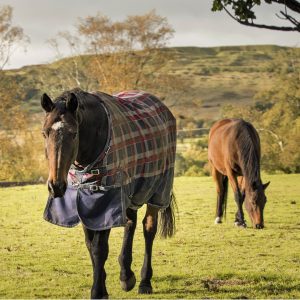
400
View Article
Vitamin E cannot be synthesized by the horse; therefore, it is considered an essential nutrient. The best source of vitamin E is fresh green grass; however, the potency of vitamin E declines very quickly once forages are harvested and dried. Vitamin E is most crucial when horses are fed diets almost exclusively composed of preserved forages.
» View Article

100
View Article
In order to maintain proper hydration, horses must drink significant quantities of water. In a cool environment, an inactive horse may drink around seven to 10 gallons daily. In a hot or humid environment, however, a horse might drink more than 20 gallons of water a day.
» View Article
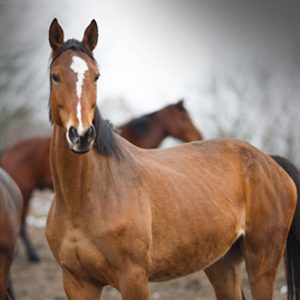
100
View Article
Horses that have demanding training or competition schedules, broodmares raising foals, and growing horses can expend a huge number of calories doing their jobs. They need energy and lots of it, but they need the kind of energy that won’t cause digestive upset or improper growth patterns.
» View Article
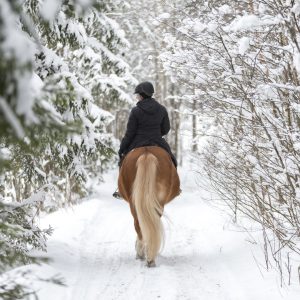
0
View Article
As the winter season approaches, it is time to evaluate your horse’s body condition score. It is important to make sure your horse begins winter in the best condition possible. If your horse has special needs it may be necessary to alter your feeding program during the winter months.
» View Article
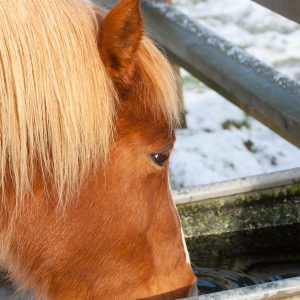
0
View Article
As the winter season approaches, it is time to evaluate your horse’s body condition score. It is important to make sure your horse begins winter in the best condition possible. If your horse has special needs it may be necessary to alter your feeding program during the winter months.
» View Article
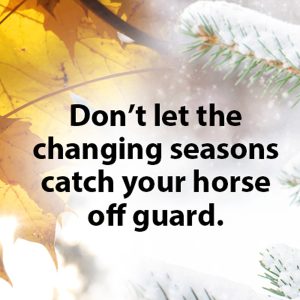
300
View Article
As the seasons change, so do the quality and content of your horse’s feeding program. Winterizing your horse with Kentucky Performance Products supplements can help him cope with the stress of the changing seasons.
» View Article
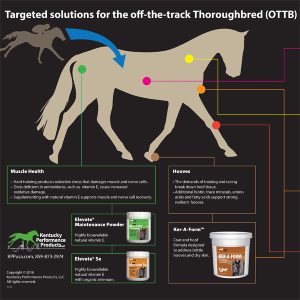
200
View Article
Transitioning an off-the-track Thoroughbred (OTTB) to a new career can result in a host of nutritional challenges. Trying to determine which supplements will best suit your OTTB may be confusing. Let’s break down the process and look at some of the challenges.
» View Article
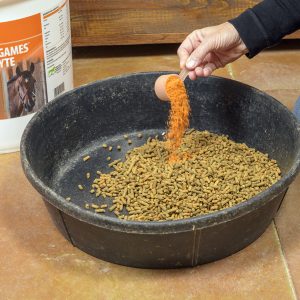
200
View Article
Let's face it: supplements can be expensive, especially the good ones that really work.
It is easy to fall into the trap of feeding less than the recommended amount or letting your supply run out from time to time, but in the long run those tactics just waste money.
» View Article

200
View Article
Can what you feed be making your horse a little crazy? The short answer is yes, it might be. Diets high in simple carbohydrates, like the sugars and starches found in some concentrates (those high in grain and molasses), can cause a horse to have hormone fluctuations that lead to anxiousness and excitability.
» View Article
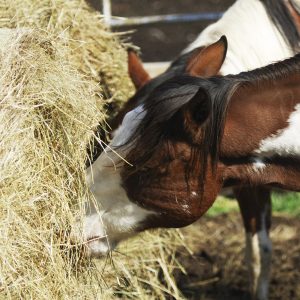
300
View Article
There is often a stigma attached to feeding round bales to horses, but managed well they can be a safe and economical option. When baled and stored properly, round bales are no more prone to growing bacteria or mold than square bales. If you decide to feed round bales to your horses, be sure to purchase them from a reputable dealer who has cut and stored the hay properly. Click here to download infographic.
» View Article
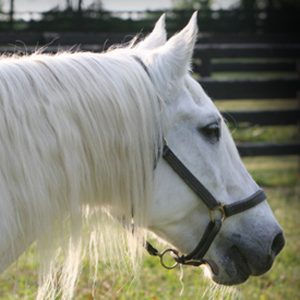
0
View Article
Over the past couple of decades improved management, nutrition, and veterinary care have contributed to increase longevity in today’s horse population. It is not unusual to hear of horses living well into their thirties. As horses age, the wear and tear of a lifetime of activity takes its toll on joints, leading to the development of arthritis. While there is no cure for arthritis, there are ways we can keep senior horses more comfortable.
» View Article
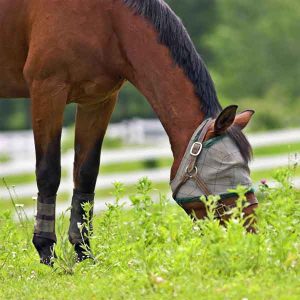
100
View Article
Mosquitoes are not just annoying; they pose a health risk for your horses. Mosquitoes spread several neurologic diseases: West Nile virus, eastern equine encephalomyelitis, and western equine encephalomyelitis.
It is important to vaccinate your horse to protect against these diseases as well as take steps to manage the mosquito population on your farm.
» View Article
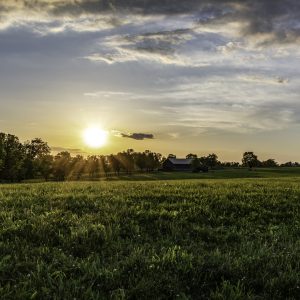
100
View Article
Healthy pastures require year-round maintenance. Depending on your situation you may need to rest overgrazed pastures, control weeds, spread manure, test soil, reseed, or fertilize. Check out our pasture management infographic.
» View Article
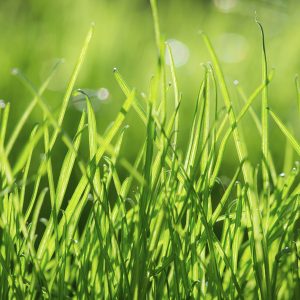
100
View Article
Limit access to lush pasture in at-risk horses, especially in the spring and fall.
Grazing strategies for at-risk horses:
» View Article
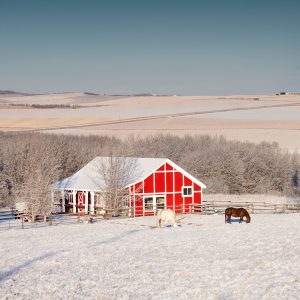
100
View Article
5 Tips to Prepare Your Feed Room for Winter
» View Article
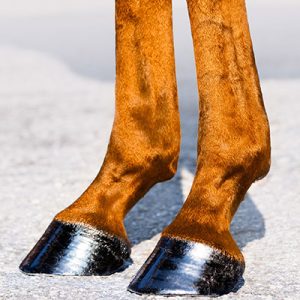
300
View Article
Biotin has become commonplace in feed rooms across the world because of its reputation as an effective hoof supplement. And while this is true, some horsemen believe it to be a man-made and mystical creation. Nothing could be further from the truth. Like the more familiar niacin, riboflavin, and thiamin, biotin is first and foremost a B-vitamin.
» View Article

















